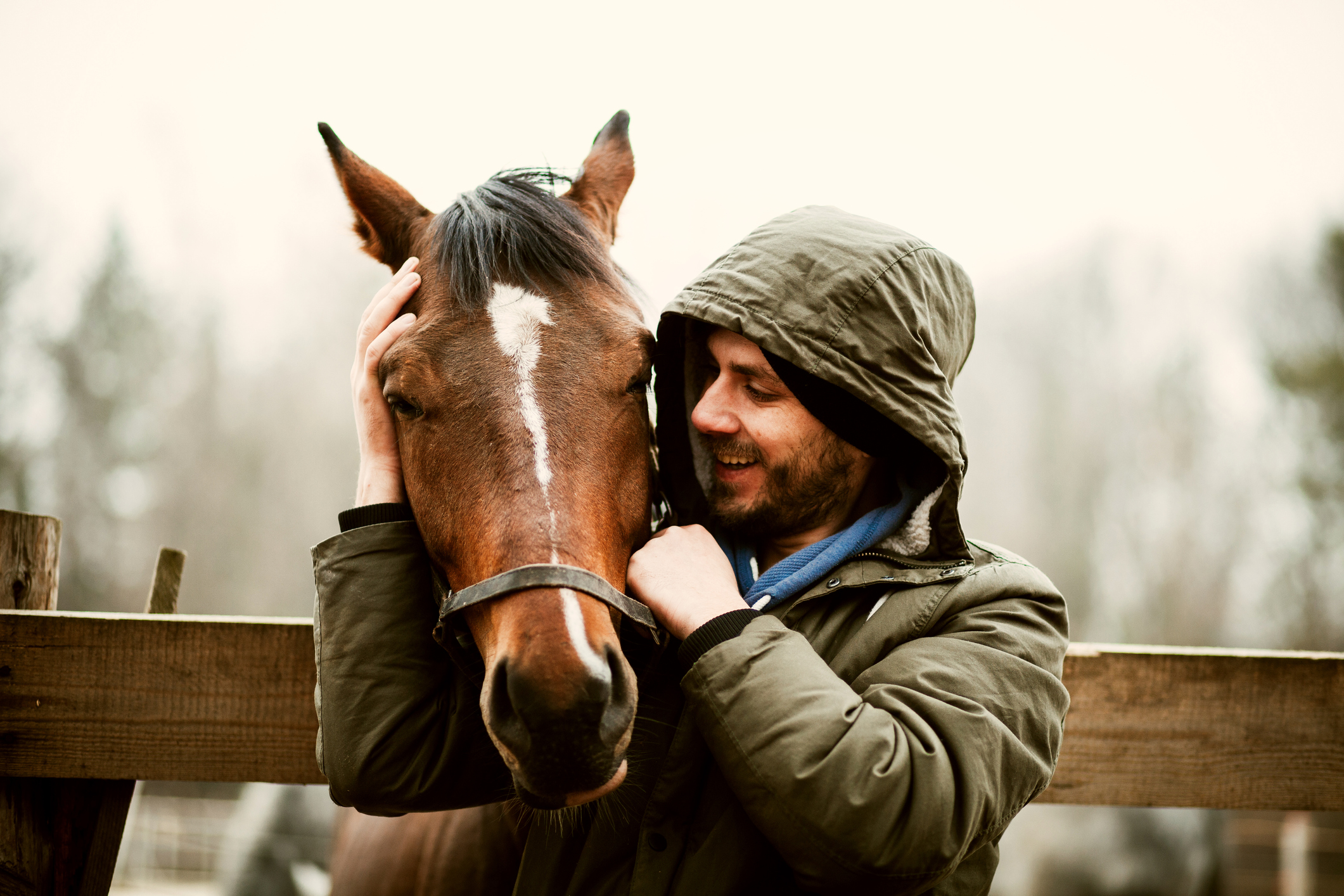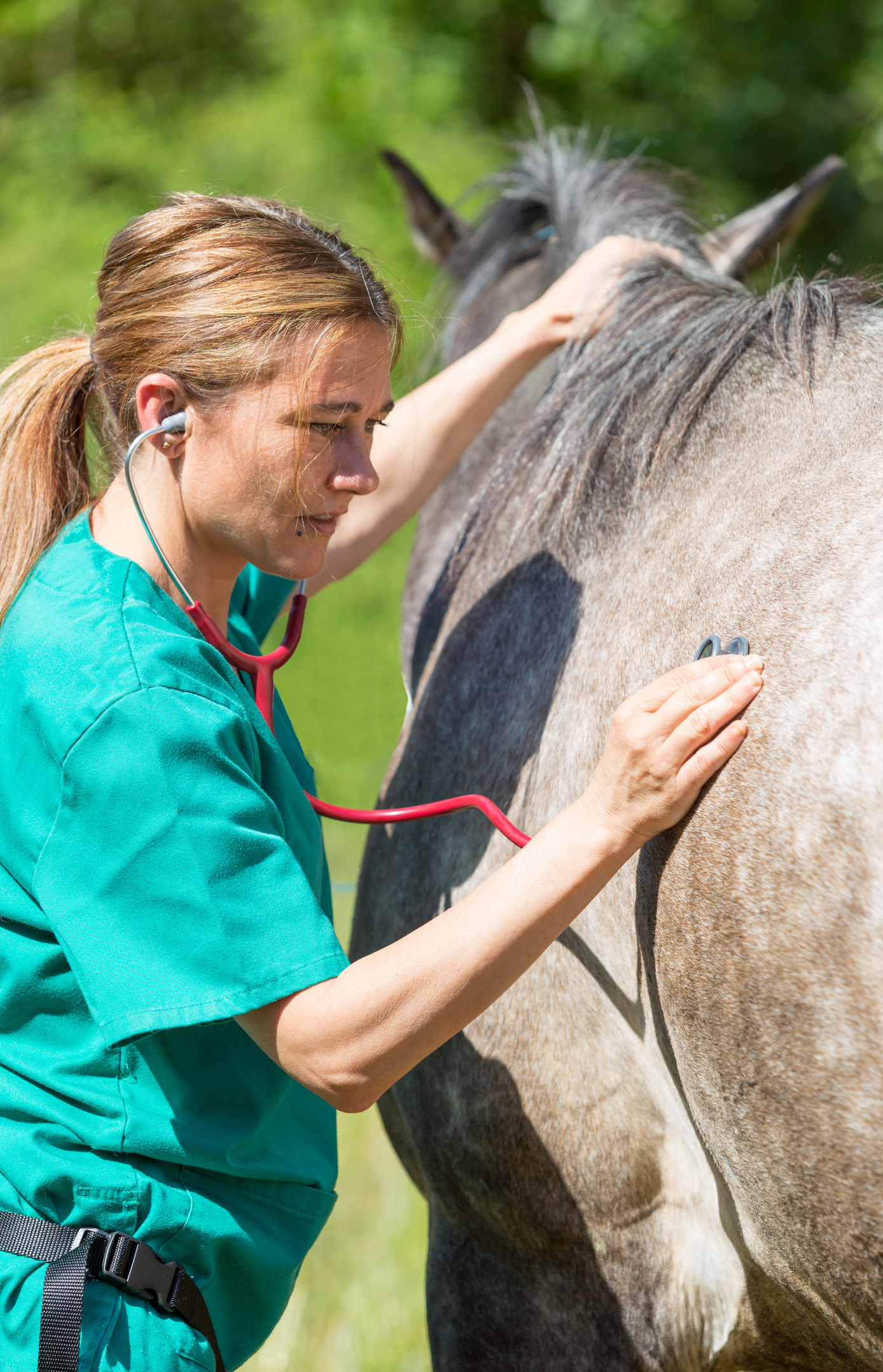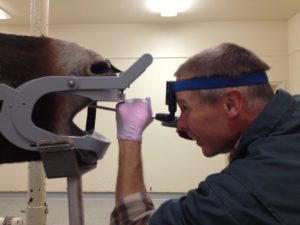Thank you for choosing Ellensburg Animal Hospital to partner with you in providing the best care for your horses. We offer a wide range of equine services to prevent and treat common ailments of horses, ponies, donkeys and mules.
Large Animal Services
Routine Equine Preventive Procedures
An annual examination is important to detect and manage all aspects of your horse’s health. We have a wide array of examination, laboratory and radiology services for diagnosing and treating lameness and other health conditions.
- Vaccinations
- Deworming
- Dental Care
- Physical Examinations
Other health concerns or conditions that can be evaluated:
- Colic
- Lameness
- Respiratory Disease
- Wounds
- Ophthalmic (eyes)
- Obesity/weight management
We also offer:
- Coggins testing for Equine Infectious Anemia
- Health certificates

Digital Radiograph
- Images available in seconds
- Rapid consultation
Lameness Evaluation
- Hoof exam, hoof testing and consultation with farriers
- Digital X-ray
- Gait evaluation
- Limb flexion tests
- Maintenance therapy (Injectables- Adequan, Legend)
- Consultation/recommendations for oral supplementation or anti-inflammatory medications.
Ultrasound
- Soft tissue, tendon, ligament injures
- Monitor healing of wounds
In House Laboratory
- CBC/Fibrinogen
- Equine Chemistry Screen
- Serology
- Cytology
- Urinalysis
Senior and Geriatric Care
- Dental care
- Nutritional counselling
- Cushing’s diagnosis and treatment
- Sarcoid & skin cancer management
- Management of chronic conditions

Equine Dental

Dental Maintenance is a major factor in equine health. Historically, horses would get their teeth floated as they developed problems with age but keeping the teeth growing evenly and maintaining alignment has been shown to be very effective starting as early as two years of age when permanent teeth are coming in. Since a horse’s teeth grow throughout most of their lives, deviations when they are young perpetuate and often become worse. Problems with baby teeth affecting growth patterns can cause many problems later on such as wave mouth, misalignment of jaws and molar spikes.
Many training problems connected with bridle and bit including fighting the bit, refusing a turn and fighting back when “bridled up” can be helped or corrected with dental care. Other indications of dental problems include slow chewing, spitting out wads of hay or grass, and weight loss.
“Floating” or filing the teeth is typically performed under sedation with a dental speculum in place. Sedation is necessary to do a high quality procedure with full access to the teeth and to reduce chance of injury.
Emergency Care
- Colic assessment and medical treatment
- Lacerations/wounds
- Choke (common name for an obstruction of the oesophagus of a horse)
- Exertional rhabdomyolysis (commonly known as tying up syndrome)

